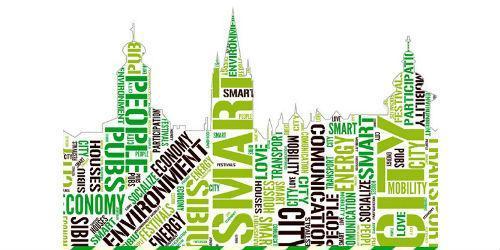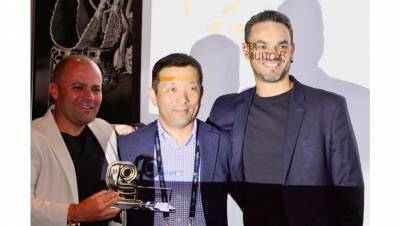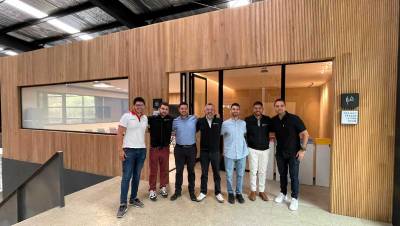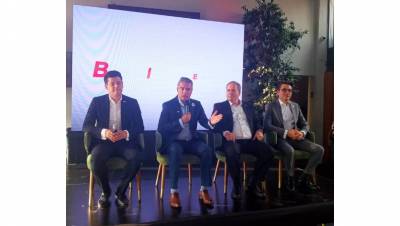 International. I recently traveled to Singapore to support customers of Hitachi LTD and Hitachi Data Systems. In addition, as Chair of the Scientific Advisory Board for The Data Storage Institute of Singapore's Agency for Science, Technology and Research, I took the opportunity to visit this institute.
International. I recently traveled to Singapore to support customers of Hitachi LTD and Hitachi Data Systems. In addition, as Chair of the Scientific Advisory Board for The Data Storage Institute of Singapore's Agency for Science, Technology and Research, I took the opportunity to visit this institute.
In my meetings I explained Hitachi's strategic direction towards Social Innovation; which is the use of information technology and operational technology to build healthier, safer and smarter societies. That's the same goal for Singapore under its strategy to become a Smart Nation. Singapore is a nation of 5.5 million people living on an island of 694 square kilometers. The population density is 8,000 people per square kilometer. With one of the highest population densities in the urban world, an aging population with no natural resources, so you can understand why Singapore is motivated to harness technology to create not only a smart city, but also train smart people.
In fact, Singapore is considered to be at the forefront of building smart cities. IDC recently announced the winners of the AP Smart City Evolution Index competition (Asia Pacific – excluding Japan), following its launch in July 2014. This index was based on 14 smart services and Singapore emerged as the big winner in four categories: transport, land use and environmental management, education and Smart Water.
Singapore also has a good relationship with Denmark, which is another leader in the Smart Nations movement. While Denmark intends to be the first zero-carbon nation by 2050; its largest city, Copenhagen, plans the same for the year 2025. Driven by this common interest, Singapore and Denmark met last November to exchange ideas on smart solutions and explore ways to collaborate for the benefit of both nations. Topics included harnessing the power of large intelligent data mobility, intelligent energy management and urban planning.
Hitachi has partnered with the city of Copenhagen to form CLEAN, a clean technology cluster, and the city has a consortium of partners to create a data exchange platform between cities to help them reach their carbon neutrality target by 2025.
The goal is to establish a market for the sale and acquisition of data among all types of users, including academia, the public sector, large enterprises, SMEs, start-ups, and individual application developers. This will be the first time that public and private data will be integrated into a single solution that can be accessed by anyone to face the challenges of sustainability and quality of life.
This will help ensure that smart city projects do not form silos of data and information. With an exchange of data, energy, transport, water, etc., everyone can work together and create synergies that accelerate the transition to a zero-carbon city.
In addition to reducing carbon consumption, companies can benefit from using this data to optimize their operations and better serve their customers. Examples may be the location of a restaurant, based on foot traffic in the area, as well as the storage of certain items based on projections of changes in climate or demographics. By making this data exchange available for a fee, they encourage people to supply the city with smart solutions.
Many cities are embarking on smart initiatives. There may be multiple projects underway at the same time that are not coordinated. Both Copenhagen and Singapore seem to be able to coordinate their smart initiatives. Copenhagen's approach to the smart city is to start with a data exchange, Singapore's approach is top-down through its Infocomm Development agency (IDA)'s Smart Nation Platform. This is one of the initiatives that allow everyone, everywhere, to be connected all the time in Singapore. "Widespread connectivity, along with common infrastructure and technical architecture, will enable citizens, businesses and government agencies to leverage technology to improve life in a smart nation."
Both approaches appear to be effective in building smart cities and creating social innovation. Hitachi's strategy around social innovation is complemented by both approaches.
Text written by Hu Yoshida, Vice President and Chief Technology Officer of Hitachi Data Systems.


























Leave your comment